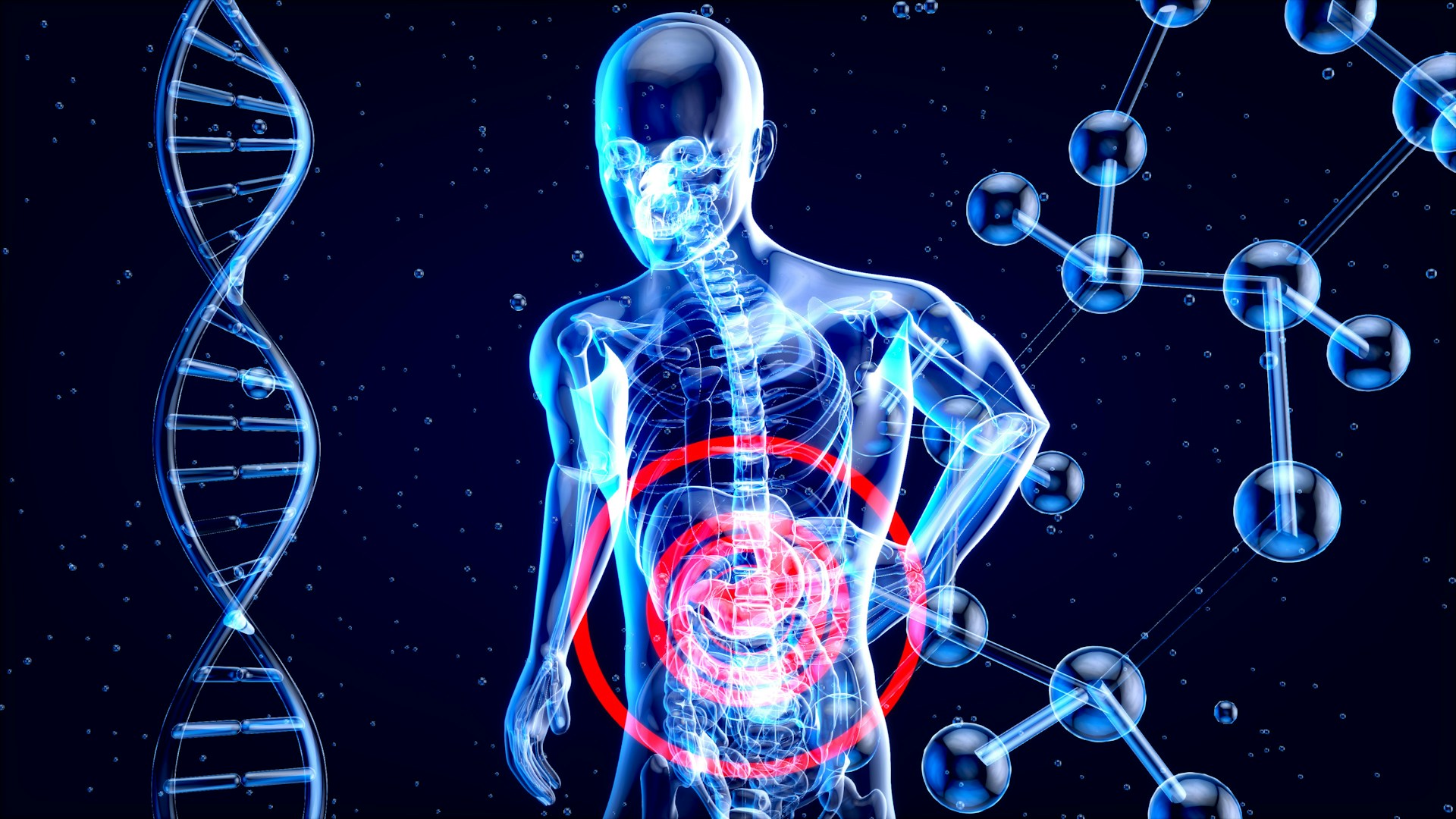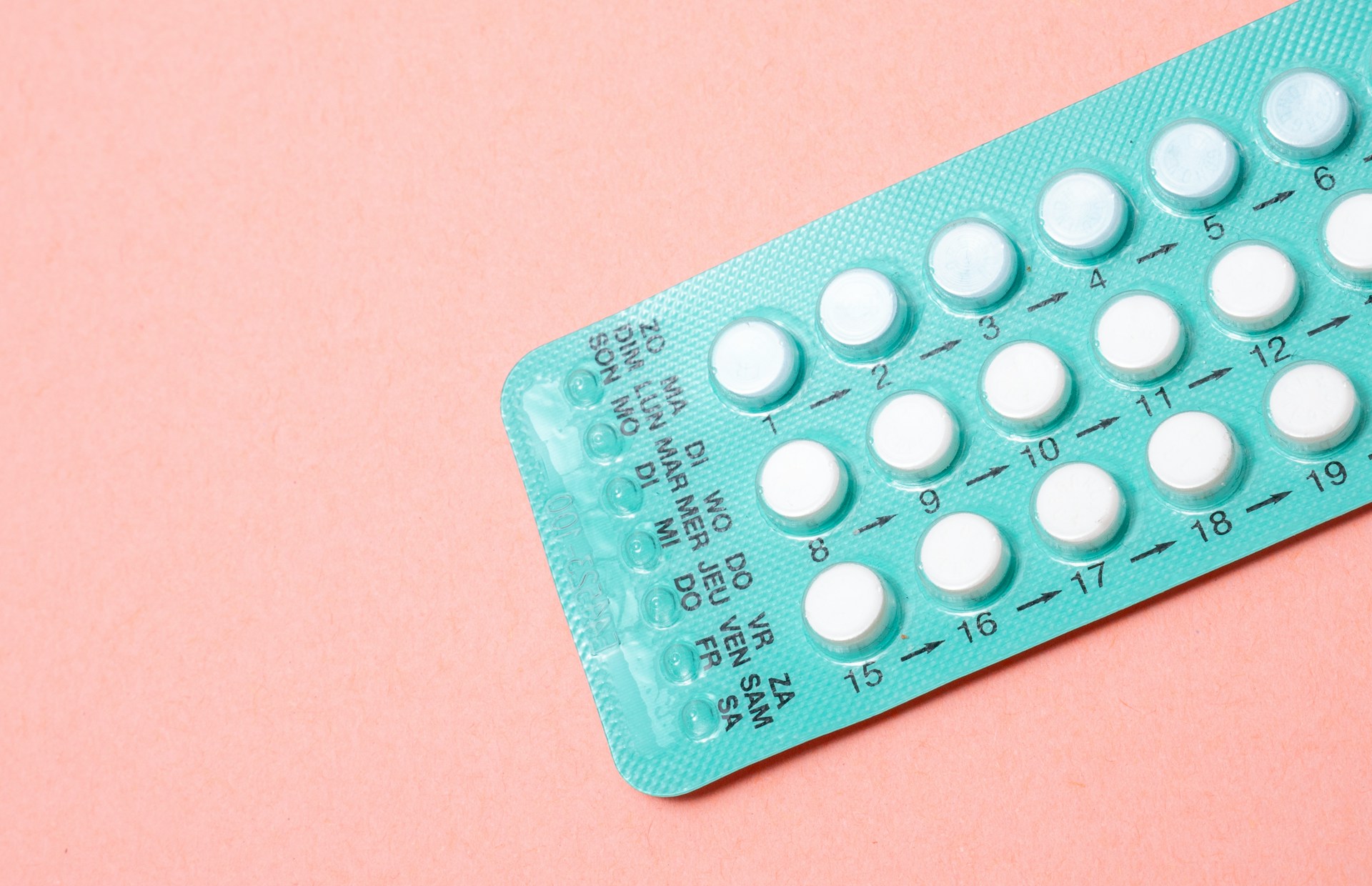The number of microorganisms using our gut as a home severely outnumbers our own cells therefore, it is plausible that this gut microbiota can impact our health. Photo credit: julien Tromeur via Unsplash
People have always told me, “Always listen to your gut when making decisions”. This may just sound like a metaphor for following what you think is right, but perhaps there is a certain level of truth to this. Think about it, when you’re hungry your emotions are affected. Many of our daily mood swings are dependent, in one way or another, on our appetite. But there is another key player in this “gut-brain axis”, one that has evolved over time to co-exist with us, forming a symbiotic relationship.
It may surprise you to learn that your colon houses many microbes (~ 100 trillion), so many that they actually outnumber human cells. This collection of microbes in your gut is collectively known as the “gut microbiota”. As John Cryan, professor of anatomy and neuroscience at University College Cork, put it: “When you go to the bathroom and shed some of the microbes, just think: you are becoming more human”. This seemingly easy loss of your gut microbes may make you think that their presence has no influence on your physiology and daily life. This couldn’t be more far from the truth.
It may surprise you to learn that your colon houses many microbes (~ 100 trillion), so many that they actually outnumber human cells.
Dr. William Beaumont, a 17th century surgeon who is also known as the “Father of Gastric Physiology”, is widely considered as the originator of the “gut-brain axis” theory. Although his methods of experimentation are controversial and would almost certainly be deemed unethical by today’s standards, his research has revealed valuable information on the makings of the human gut, including the discovery that the brain and the gut interact with each other.
Listening to your gut – understanding the gut microbiota
Before we dive in deeper, let’s have a look at what the gut microbiota actually is. The composition of microbiota appears to be similar across healthy individuals. For example, a healthy gut microbiota mainly contains the bacterial species Firmicutes and Bacteroidetes, followed by Actinobacteria and Verrucomicrobia. Although the general profile remains unchanged throughout a person’s lifetime, the gut microbiota is easily influenced by many external factors such as environment, diet, mode of birth, and even the people you live with. There are also differences in number and diversity as you move from the oesophagus to the rectum: bacteria have adapted to survive in different portions of the gut.
Nowadays, with the advent of powerful genome sequencing technologies and mouse models, we are able to improve our understanding of the role of the gut microbiota in many physiological processes. For instance, our gut microbiota protects us from harmful bacterial growth by competing with them for nutrients. In addition, the microbiota stimulates the release of compounds known as antimicrobial proteins from cells in the gut, which act as “natural antibiotics” that defend against dangerous microbes. Furthermore, our good bacteria are also key players in shaping our immune system, allowing for the normal production of antibodies.
The gut microbiota also influence health via various metabolites that are generated during their lifecycles. For example, some bacterial species are able to break down complex carbohydrates and proteins into short-chain fatty acids (SCFAs), which are crucial in glucose metabolism, allergy modulation, and blood pressure stabilisation. Given this indispensable role in maintaining health, it is reasonable to infer that alterations in the composition of the gut microbiome (known as dysbiosis) may be relevant in disease. In fact, previous links have been made between dysregulation and cases of diabetes and cardiovascular illnesses. Moreover, research has shown that dysbiosis may induce inflammation, which might be associated with the initiation and progression of colorectal cancer. When outgrowth of harmful bacteria occurs, production of bacterial toxins may damage cells that line the gut, and this may be relevant to the development of cancer.
Similarly, due to knowledge of the “gut-brain axis”, researchers have been looking into the role of gut microbiota in debilitating neurodegenerative diseases, such as Alzheimer’s and Parkinson’s disease. These diseases are debilitating and put massive strain on the healthcare system. Despite decades of research efforts, there has been little advancement in understanding of these diseases or in the invention of new therapeutics. Even newly approved therapeutics show only a modest effect on slowing disease progression. Perhaps the answer to this enigma is sitting quietly within our own gut.
Parkinson’s disease and the gut microbiota – how are they linked?
Parkinson’s disease is the second most common neurodegenerative disease, with one in every 37 people being diagnosed at some point in their lifetime. It is commonly characterised by slow and halting movements, known as bradykinesia, as well as tremors and postural instability. These symptoms gradually worsen over time. Although much about the disease remains unknown, it is thought to be caused by the loss of neurons that secrete the neurotransmitter dopamine, which allows neurons to communicate with each other. Neuron loss is caused by the toxic build-up of proteins in structures called Lewy bodies. How this accumulation is stimulated, however, is poorly understood.
The initial observation that piqued interest in the role of the “gut-brain axis” in Parkinson’s disease is the fact that 80% of patients present gastrointestinal symptoms. Furthermore, the vagus nerve, one of the longest nerves in our bodies, directly connects the brain to the heart, lungs, and digestive tract. When patients undergo a medical procedure that blocks signalling by the vagus nerve, the risk of developing Parkinson’s disease decreases. Overall, the evidence suggests some link between Parkinson’s disease and the gut, but the question remains as to how this happens.
As was alluded to earlier, the gut microbiota may hold the key to this. Indeed, when researchers investigated the gut microbiota in Parkinson’s patients, there appears to be a certain degree of dysbiosis present. For instance, reports show an abnormal increase in overall bacterial population in the small intestine, particularly in species not usually found in the digestive tract. Importantly, treating this can improve motor symptoms. Changes in SCFA-producing bacteria, such as Faecalibacterium and Roseburia, have also been observed, and were shown to be predictive of Parkinson’s disease development. As intriguing as these observations are, they still do not explain how gut dysbiosis can cause changes in the brain.
The brain is considered to be an “immune privilege site”, which means that it is generally protected from entry of bacteria and even immune cells. This is maintained by the blood-brain barrier, which is formed by tightly joined cells and prevents potentially damaging substances from accessing the brain. As previously mentioned, SCFAs produced by the gut microbiota modulate a variety of physiological functions, including the integrity of the blood brain barrier. This occurs via certain sensory cells (known as sensory intestinal enteroendocrine cells), which are able to detect these fatty acids and communicate them to the brain via the vagus nerve.
In Parkinson’s disease patients, reduced SCFAs are detected in faeces. These reduced levels are thought to increase the permeability of the blood-brain barrier, allowing for immune cells and damaging substances to enter the brain. This causes inflammation that may contribute to the development of disease. Moreover, because of the connection between the gut and the brain, inflammation of the gut may directly disrupt the integrity of the blood brain barrier, which further fuels the fire. Lewy bodies formed in the neurons at the gut might also eventually propagate via the vagus nerve into the central nervous system and form plaques in the brain. All these processes would cause disruption in brain function and the eventual degeneration of dopamine neurons, causing the onset of Parkinson’s disease.
Linking it together – Why is it important to understand?
If we are able to properly dissect the role of gut microbiota in the development of Parkinson’s disease, or neurodegenerative diseases in general, it may provide us with better understanding of interplay between the many factors involved in the disease, leading us to new therapeutic opportunities. Currently, there are no effective treatments for halting the progression of Parkinson’s disease. The most potent treatment levodopa (L-DOPA), which is given to replace the dopamine in the brain, is only able to relieve motor symptoms. Hence, research is focusing on gut microbiota-based therapies, such as probiotics and prebiotics, which supplement the gut microbiome with “good” bacteria and feed those bacteria, respectively. One interesting therapy is faecal microbiota transplantation, which involves transferring faecal bacteria and other microbes from a healthy individual to a patient. This is currently widely used to control Clostridium difficile infection, a harmful bacterium which infects the colon. In Parkinson’s disease, this type of transplantation has been shown to relieve patients’ symptoms, but more research is needed to better define the effectiveness and safety profile of this treatment. Nonetheless, it remains an exciting field of research.
If we are able to properly dissect the role of gut microbiota in the development of Parkinson’s disease, or neurodegenerative diseases in general, it may provide us with better understanding of interplay between the many factors involved in the disease, leading us to new therapeutic opportunities.
As promising as it all sounds, research looking at the gut microbiota and Parkinson’s disease is still in its infancy. This is because most studies are only able to show that the two are associated, but studies are unable to prove a cause-and-effect relationship. In other words, we don’t know for sure whether changes in the gut microbiota are the initial trigger for Parkinson’s disease or if the gut microbiota is altered somewhere along the progression of the disease. This gap in our understanding creates challenges when trying to translate research into effective therapies. Hence, more work has to be done to understand how the brain and gut communicate with each other and also to define the gut microbiota composition in healthy and diseased individuals. All in all, it is indeed becoming clear that the gut microbiota may play a role in Parkinson’s disease, and by better understanding this connection, we could get one step closer to treating this debilitating disease. Seeing how important the gut microbiota is to the well-being of our brain, maybe think twice before you decide to toss out the green vegetables from your dinner plate.





